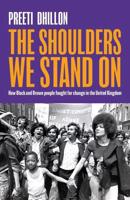Publisher's Synopsis
This SAGE Handbook integrates basic research on social dimensions of aging. It presents programmatic applications of research in areas not often seen in Handbooks including imprisonment, technology and aging, urban society aged, and elderly migration. The authors constitute a Who′s Who of international gerontology, and the focus on globalization and aging is unique among Handbooks today. This Handbook should be in the library of every social gerontologist.
- Vern L. Bengtson, Professor of Gerontology, University of Southern California
This volume reflects the emergence of ageing as a global concern, including chapters by international scholars from Asia, Australasia, Europe and North America. It provides a comprehensive overview of key trends and issues in the field, drawing upon the full range of social science disciplines.
The Handbook is organized into five parts, each exploring different aspects of research into social aspects of ageing:
- Disciplinary overviews: summaries of findings from key disciplinary areas within social gerontology.
- Social relationships and social differences: explores area like social inequality, gender, religion, inter-generational ties, social networks, and friendships.
- Individual characteristics and change in later life: examines different aspects of individual aging, including self and identity, cognitive processes, and bio-social interactions and their impact on physical and psychological aging.
- Comparative perspectives and cultural innovations: topics include ageing and development, ageing in a global context, migration, and cross-cultural perspectives on grandparenthood.
- Policy issues: covering policy concerns such aslong-term care, technology and older people, end of life issues, work and retirement, and the politics of old age.
This will be essential reading for all students, researchers and policy-makers concerned with the major issues influencing the lives of older people across the globe.










